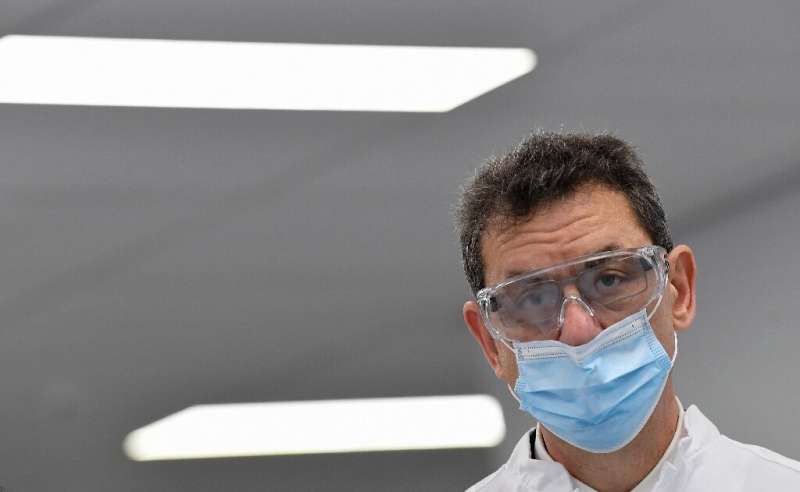

Pfizer sharply increased its projections for 2021 revenues and profits on Tuesday, citing much higher Covid-19 vaccine sales as it targets the inoculations as a “durable” revenue stream.
The drugmaker, which has a number of projects to expand vaccinations to additional populations and to provide booster doses, now estimates 2021 revenues of $26 billion from the vaccine, up from $15 billion previously.
Pfizer now sees profits of between $3.55 and $3.65 a share for the year, an increase of 45 cents from the previous estimate.
Chief Executive Albert Bourla expects “durable demand” for Covid-19 vaccines, similar to that of the flu vaccine.
The company is ramping up capacity for the shots, which were developed with German company BioNTech.
“It is our hope that the Pfizer-BioNTech vaccine will continue to have a global impact by helping to get the devastating pandemic under control and helping economies around the world not only open—but stay open,” Bourla said in prepared remarks ahead of a conference call later Tuesday.
He said that would create “a scenario in which Pfizer can continue to be both a leader and a beneficiary.”
Pfizer reported net income of $4.9 billion, up 45 percent from the same period of the prior year.
Revenues also jumped 45 percent to $14.6 billion, including $3.5 billion in Covid-19 vaccine sales.
Pfizer expects to deliver 1.6 billion doses this year under contracts signed through mid-April.
The company’s results also included a “solid” performance in non-vaccine products. Products with higher sales included Eliquis, which is used to prevent blood clots, and Xeljanz, which treats rheumatoid arthritis, among other ailments.
As with other Covid-19 vaccine producers, Pfizer developed its version at an exceptionally fast pace. The company is expected to soon win approval in the United States to provide shots to children 12 to 15 years old, and is researching providing the doses to healthy children six months to 11 years old.
Pfizer also is evaluating a third dose of the treatment “to understand the effect of a booster” against Covid-19 variants now in circulation.
The drugmaker said it reached agreements with Israel to supply millions of doses in 2022, and with Canada to supply 125 million doses in 2022 and 2023, with options into 2024.
The company and partner BioNTech have significant supply agreements with the United states and the European Union.
After logistical problems in Europe, Pfizer and BioNTech are on track to significantly boost vaccine production in Puurs, Belgium.
As of May 3, Pfizer and BioNTech have shipped about 430 million doses of the vaccine to 91 countries around the world.
The company is building more capacity and expects to manufacture at least three billion doses in 2022, up from 2.5 billion now expected in 2021. In February, Pfizer said it expected to produce up to two billion doses in 2021.
Source: Read Full Article